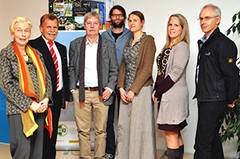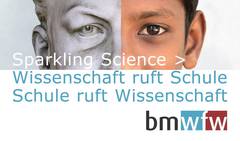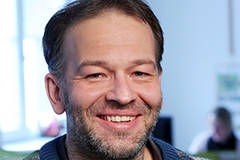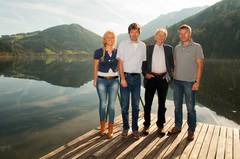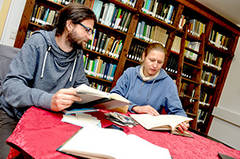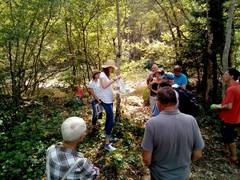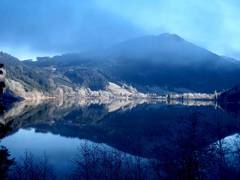The history of limnology can hardly be imagined without the Biological Station Lunz. The historians Katja Geiger and Thomas Mayer are going to reprocess the history of the BSL, which goes back nearly 110 years, and presented first results of their project on Friday, 24th October, in WCL.
The Sparkling Science Project "PowerStreams" started on Oct 1st. In this research-education-cooperation, scientists work together with schools to measure the efficiency and sustainability of nutrient and organic matter uptake in slightly to heavily polluted streams. Our partner schools are Francisco Josephinum, BRG Waidhofen/Ybbs, BORG Mistelbach and HBLFA Raumberg-Gumpenstein.
Working group leader Robert Ptacnik received on September 16th his postdoctoral lecture qualification at the University of Vienna in the subject Aquatic Ecology. The title of his habilitation lecture was „Fresh and salty: Spatial pattern in plankton diversity along natural stress gradients“. Robert Ptacnik teaches aquatic biodiversity and multivariate statistics in Vienna.
After 34 years emeritus professor Otto Siebeck from Munich visited his former domain. He was very delighted to see a flourishing research center. For WCL it was an honor to welcome professor Siebeck, who worked in Lunz in the fiftiys and sixties and investigated vertical zooplankton movement and seasonal zooplankton abundance.
How important was Biological Station Lunz in the history of limnology? Two historians from the University of Vienna were at WasserCluster Lunz in August in the course of preliminary studies for a FWF project and combed through the historic library in the Biological Station Lunz (BSL). First results are presented in October.
A new study of Tom Battin and his team, which is published in PNAS journal, offers potential insights into the response of microbial community organization and persistence to human pressures that increasingly change the hydrological regime and biodiversity dynamics in fluvial networks.
On Friday, 13th June, the WasserCluster Lunz arranged an open day. Kids could experience science in special workshops, and many visitors joined the guided tours through the WasserCluster and the Biological Station.
Fish stock in Lake Lunz is changing as more and more pike live in the lake. WCL-group leader Martin Kainz researches this phenomenon with an international team. The austrian TV made a short report.




